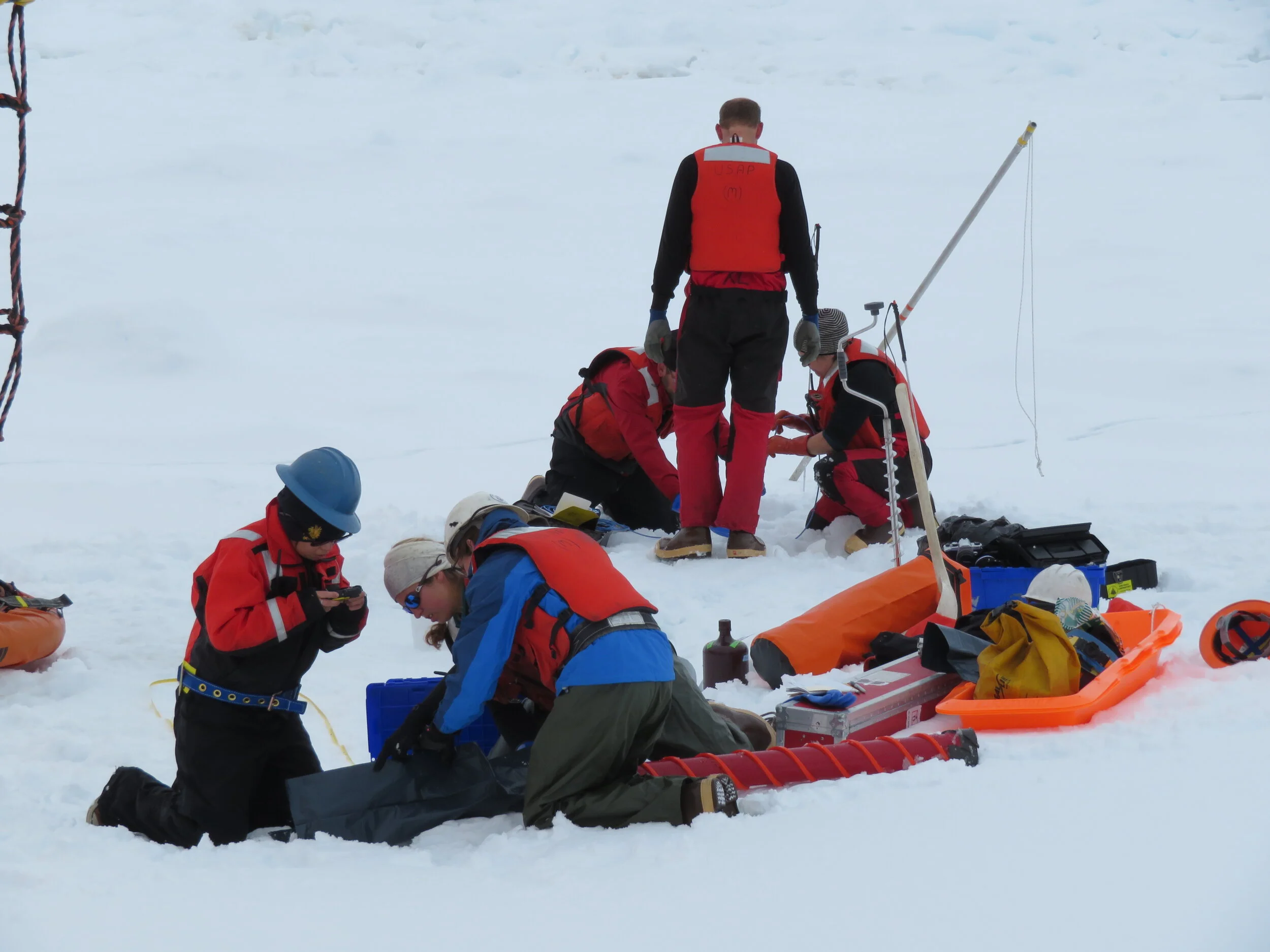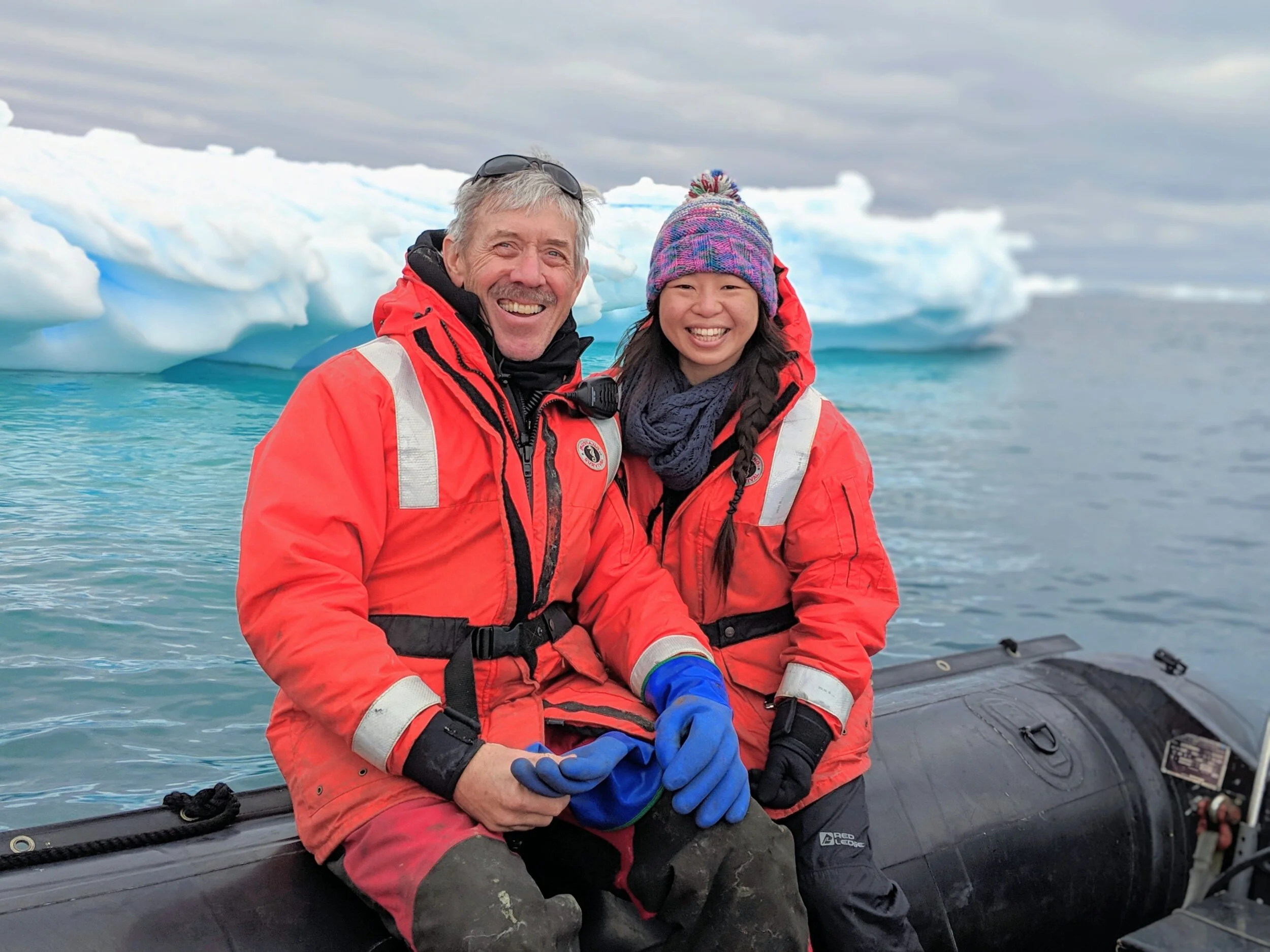I’m Rebecca Trinh!
I am a first generation Teochew Chinese American. The Teochew region has a distinct language, culture, and customs compared to other parts of China. My family fled China due to persecution of Teochew people. They then became refugees of the Vietnam War. After fleeing by boat to deserted islands, and then refugee camps, my family landed in California and began to build a life for themselves. Today, the Teochew people exist as a distinct diaspora in many different countries.
As a first generation American, I felt out of place, unable to relate to many Americans and unable to speak Mandarin to fellow Chinese kids, but I have grown into myself and my passion here. I am thankful to have grown up in San Diego, California, where regular access to the beach was possible. Teochew literally translates to Tide State. I find significant meaning in this identity and the call to the ocean I feel.
This connection to the sea made me want to spend my life working with and understanding the world's oceans.
Currently, my work in Antarctica focuses on understanding the role organisms play in carbon storage in the deep ocean. This has grown into me mostly collecting and looking at krill poop and the rate of bacterial decomposition of krill fecal pellets as they sink through the water column, as krill fecal pellets are great agents of carbon transport to the ocean interior.
I am constantly inspired by the beauty of the natural world and the weirdness of the ocean environment. The uniqueness of organisms is amplified in harsh habitats, such as in the Antarctic regions, which is why I have always dreamed about working there. For those young and starting out, stay curious, keep asking questions, and don't be afraid to get your hands dirty.
I find science to be a creative process. I channel a lot of the same type of observational skills and creativity into my art of wood burning and pressed foliage prints. As a Teochew person, good food is a passion and a pass time in our family. Ice skating keeps me in touch with my polar work and hiking up mountains gives me a fresh perspective on the world.
The first time I made a connection with polar exploration was from afar, watching beautiful David Attenborough documentaries as a kid.
Growing up in San Diego, California also afforded the opportunities to see penguins and other animals at the San Diego Zoo. I thought if I worked really hard, I would one day be able to work in Antarctica as an old adult, late in my career. I am forever grateful for the chances I have had to study the Southern Ocean at this early stage in my career. I have completed 3 field seasons in Antarctica and am touched by the immense beauty of the continent and all the animals down there each time I am there.
My family, as refugees on deserted islands, does not understand why I would actively choose to give up modern toilets to work in remote areas without real bathrooms. As I have been stubborn in my choice to keep studying the marine environment, they are learning to accept that this is my path. They have also started taking an interest in my work and the younger kids constantly ask me about the animals they see on the TV or read about in their books. I love being able to answer their questions and spark curiosity in them.
I hope to continue studying the ecology of the oceans in both polar and nonpolar regions. I want to understand how things big and small work together in complex ocean currents to form unique ecosystems.
Though my parents do not necessarily understand the meaning I derive from scientific exploration, understanding, and interaction with the ocean, my father inspires me to strive and do things the right way. He inspires me to see beauty in the world where others might not. My advice to others is to remain persistent in your endeavors and ground yourself in what inspired you to select this career path.
The fact that Antarctica has mostly been set aside for scientific exploration reminds me that humanity can be genuine and insightful and I am lucky to be a part of the historic explorers that have come before me.
I would love to know if any other Teochew people have worked in Antarctica.
You can find Rebecca Trinh on Instagram at @fish.r.awesome.








